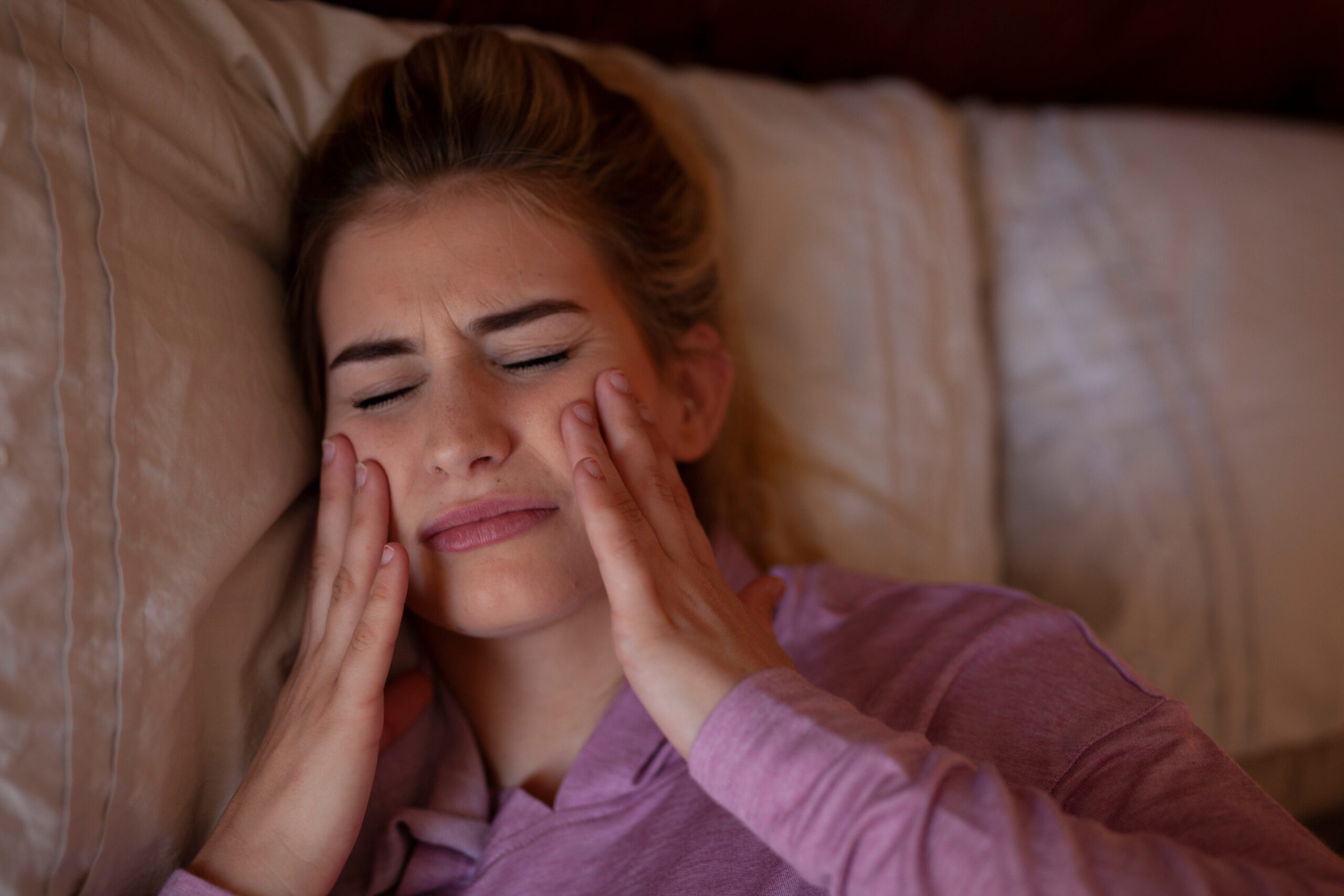
What is Bruxism?
Bruxism is the term used to describe teeth clenching or grinding. These can sometimes occur when a person’s awake, like an involuntary reaction to fear, anger, or stress. Bruxism more commonly occurs when a person is asleep and may not know that they clench or grind their teeth.
According to the Journal of Oral Rehabilitation, approximately five percent of the total population experiences awake bruxism, while 16.5 percent were found to experience sleep bruxism. Regardless of when you clench or grind, the damage that these actions can do to the teeth and jaw can be significant.
Learn about the causes, prevention, and about the impact this can have on your health.
Causes of Bruxism
There is no single cause of bruxism. This condition can have many different causes. For example, extreme stress or anxiety can sometimes lead to grinding or clenching while a person is awake or asleep. Managing stress levels and practicing relaxation techniques can often provide relief.
Certain medications have also been linked to bruxism, such as antipsychotics, antidepressants, and amphetamines. If you believe that a medication that you are taking is causing your bruxism, speak with your health care provider about your concerns.
Bite and alignment issues can sometimes contribute to bruxism. Crooked teeth, missing teeth, and an abnormal bite can cause irritation that causes you to grind or clench. Seeking treatment for your misalignment may help resolve these issues.
Some sleep issues have been associated with bruxism. Sleep apnea or deep snoring that affects nighttime breathing are some of the leading causes of this condition. Sleep problems can have a significant impact on your health and quality of life.
The Impact on Your Oral Health
While grinding or clenching your teeth on occasion will likely not have any lasting effects on your oral health, frequent clenching or grinding can be highly damaging.
Some of the most common symptoms of bruxism include the following:
- Teeth sensitivity
- Headaches
- Earaches
- Jaw pain and stiffness
- Loosening, fracturing, or loss of teeth
- Popping or clicking of jaw joints
- TMJ/TMD
- Enlarged jaw muscles
Teeth grinding can gradually wear down your teeth, ultimately exposing the nerve, and causing mouth pain. The pressure of the grinding or clenching can also cause gum damage and contribute to infections and dental abscesses.
Preventing Bruxism
In most cases, treatment is not necessary. Many children who experience this condition will grow out of it and adults often don’t grind or clench badly enough to require treatment. However, in more severe cases there are medications, therapies, and other dental approaches available.
Splits or mouth guards may be used to help keep the teeth separated and avoid the damage caused by grinding or clenching. These appliances are typically made from acrylic or other materials that comfortably fit over the upper and lower teeth.
Your dentist may recommend certain medications to treat severe cases of bruxism. Taking a muscle relaxant before bedtime may help some individuals who experience nighttime grinding or clenching.
Botox injections may be suitable for patients who don’t respond to other treatments. Your health care provider may also recommend anti-anxiety medications or antidepressants to help you deal with any emotional problems that may be causing your bruxism.
Other approaches to help relieve symptoms of bruxism include anxiety and stress management, behavioral changes (e.g. practicing proper jaw and mouth position), and biofeedback, a method that involves monitoring equipment and procedures to teach patients how to control muscle activity in the jaw.
Schedule An Appointment for Treatment Services
If you experience bruxism while awake or asleep, it’s important to be aware of the complications that it can cause. To learn more about the impact of bruxism on oral health or to schedule an appointment, contact the team of dental experts at Artistic Touch Dentistry.

